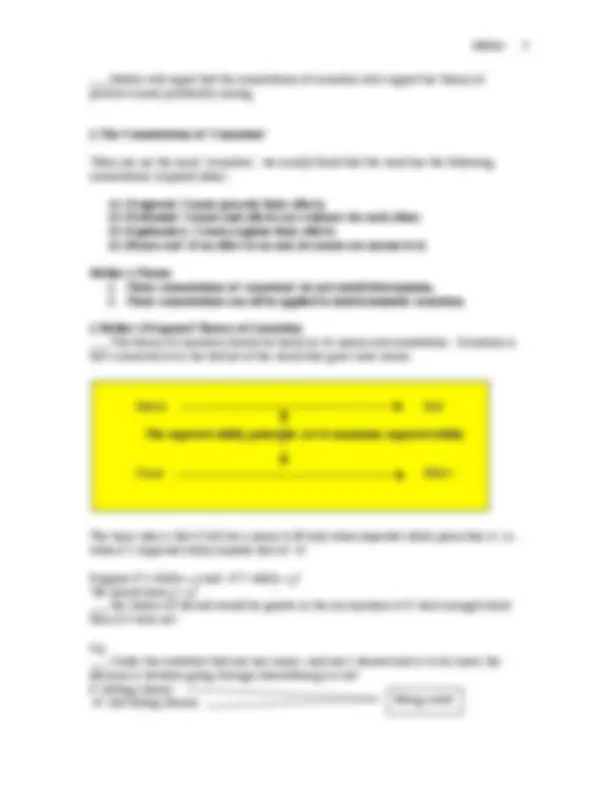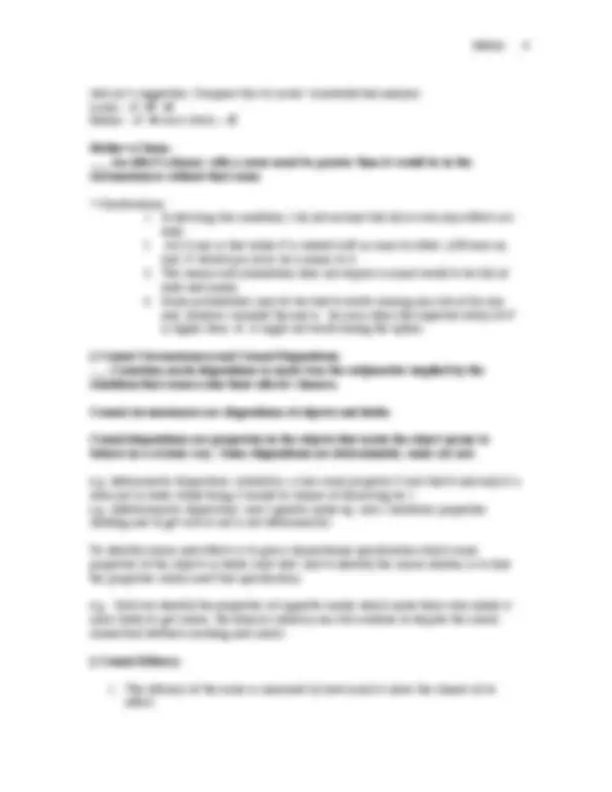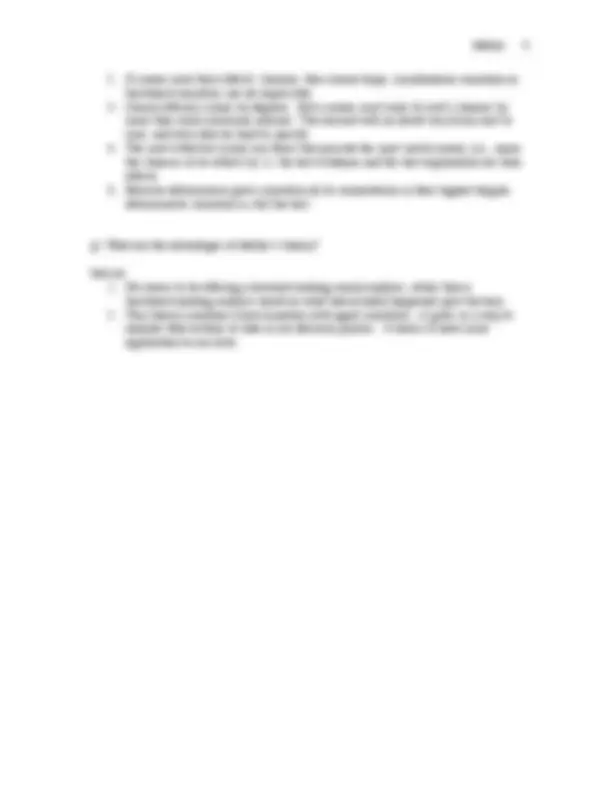





Study with the several resources on Docsity

Earn points by helping other students or get them with a premium plan


Prepare for your exams
Study with the several resources on Docsity

Earn points to download
Earn points by helping other students or get them with a premium plan
Community
Ask the community for help and clear up your study doubts
Discover the best universities in your country according to Docsity users
Free resources
Download our free guides on studying techniques, anxiety management strategies, and thesis advice from Docsity tutors
D.h. Mellor's theory of indeterministic causation, which argues that causes raise the chances of their effects. The document also compares mellor's views with those of salmon and explores the implications of interpreting 'chance' as frequency versus propensity. A handout for a university course on metaphysics.
Typology: Papers
1 / 5

This page cannot be seen from the preview
Don't miss anything!




Phil 420: Metaphysics Spring 2008 [Handout 16] D. H. Mellor: On Raising the Chances of Effects Professor JeeLoo Liu § Summary of Mellor’s Theory:
**1. Causation does not have to be deterministic.
Chances, if there are any, are in the world, not just in our inductive logic: knowledge of them is part of our evidence, not just a measure of how good the evidence is. Chances are indispensable ingredients in any world governed by statistical laws. Such a world need not, however, be indeterministic. *** [Disagreement]:
Salmon:** chance is frequency – e.g., frequency of smokers getting cancer, of radium atoms decaying in set times, of heads on coin tosses, etc. Mellor: chance is propensity – chance is like a weak disposition of coin tosses to land heads, of smokers to get cancer, of radium atoms to decay… Most of our knowledge of chances derive from knowledge of things having a kind of dispositional property – propensity. Propensities are not chances, but dispositions whose displays are chances; just as fragility is a disposition whose display is the fragile thing breaking. The disposition is a property of a thing, whereas the display is a property of an event. Q : What is the difference implications behind ‘frequency’ and ‘propensity’ interpretation of ‘chances’? ___ Frequency implies the ability to perform experiments repeatedly and make a simple count of how often the given event occurred. Frequency would be the number of times the event occurring divided by the number of experiments performed. Barry Loewer: “According to the actual frequency account the probability of event type E occurring in situation S is the actual frequency of Es occurring on S throughout all history.” (‘Determinism and Chance’, 2001) ___ Barry Loewer: “On propensity accounts chance is a measure of the strength of the tendency of one kind of situation to produce another kind of situation.” (‘Determinism and Chance’, 2001) # 2. Whether chances must raise the chances of their effects: Mellor’s main claim: Causes must raise the chances of effects. (Chances of effects must be greater with their causes than (in the circumstances) they would be without them. Salmon: No. There can be negative statistical probability between causes and their effects. How to settle the dispute on #2:
JeeLoo’s suggestion: Compare this to Lewis’ counterfactual analysis Lewis: ~ C ~ E Mellor: ~ C more likely ~ E Mellor’s Claim: ___ An effect’s chance with a cause must be greater than it would be in the circumstances without that cause.